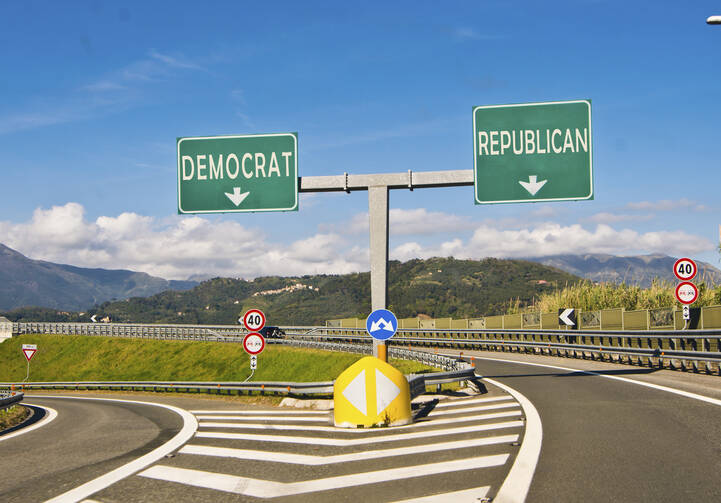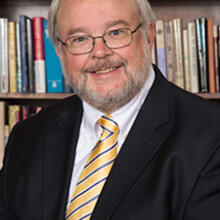For “Consistent Ethic of Life Catholics,” these are good times ecclesiastically and bad times politically. Within our church, Pope Francis is making clear by word and deed that a consistent and comprehensive commitment to protect human life is morally right, theologically sound and pastorally powerful. With his haunting metaphor of a “throwaway culture,” Francis calls us to protect “innocent victims of abortion, children who die of hunger or from bombings, immigrants...the elderly or the sick who are considered a burden, the victims of terrorism, wars, violence and drug trafficking, the environment….”
In his historic address to Congress, Pope Francis brought some Republicans to their feet, insisting on “our responsibility to protect and defend human life at every stage of its development.” But many stopped clapping and some Democrats rose when he continued, “This conviction has led me…to advocate…for the global abolition of the death penalty…. Every life is sacred; every human person is endowed with an inalienable dignity.” This congressional confusion and polarization are signs of the difficult days for the consistent ethic of life in American politics. Its place seems to be threatened in both parties.
The Republican Party is about to nominate Donald J. Trump, who previously said he was very pro-choice and supported late-term abortions. He now claims to be pro-life, but his conversion seems incomplete, since he simultaneously called for jail time for women who have abortions and defended the work of Planned Parenthood and now has reversed himself on both. He also promises to defend marriage, but critics point out he has had three of them.
His support for torture, killing the families of suspected terrorists and greater use of the death penalty are not in question. He opposes limits on military force to protect innocent civilians. He talks glibly of using nuclear weapons and abandoning nonproliferation efforts. He demonizes immigrants and promises to deport millions who have fled violence and oppression. He has fanned the flames of racism and nativism. There is hardly an “intrinsic evil” listed in the U.S. bishops’ document “Forming Consciences for Faithful Citizenship” that he has not supported at one time or another.
A group of conservative Catholic leaders offered a damning case in the primaries: “Donald Trump is manifestly unfit to be president of the United States…. Nothing in his campaign or record gives confidence that he genuinely shares our commitments to the right to life, to religious freedom and the rights of conscience.”
The Democratic Party is about to nominate Hillary Clinton, who used to say abortion should be “safe, legal and rare, and by rare, I mean rare.” She no longer says abortions should be “rare” and apparently opposes any restrictions on them. When she became the presumptive nominee, she did not go to a union hall or shelter for homeless women but to a Planned Parenthood rally, where she declared, “There is no place I would rather be.”
At the federal level, the status quo has been that abortion is legal with some restrictions, but no one is forced to pay for other people’s abortions. Now Secretary Clinton makes a priority of repealing longstanding restrictions on federal funding of abortion, which would require pro-life Americans to pay for the destruction of unborn human life. Clinton’s continuing support for the death penalty in some cases and her vote for the Iraq war also trouble consistent-ethic voters.
The Democratic governor and legislature of California enacted “physician assisted suicide” and now insist, with the approval of the Obama administration, that Catholic institutions must provide and pay for abortion as part of health care coverage. About a third of Democratic voters call themselves pro-life, but pro-life candidates and officeholders rarely get support or have a future in the party. Who has a decisive voice in progressive politics? Planned Parenthood or the A.F.L-C.I.O.? Emily’s List or immigrant groups?
Being politically homeless does not mean that Catholics who support a consistent ethic of life can avoid hard choices or engage in simplistic moral equivalency on either issues or candidates in this election. Homelessness is not a virtue but a sign that we need to find new ways, allies and arguments to make a persuasive case for the protection of the life and dignity of all—in both parties and in a “throwaway culture.”








